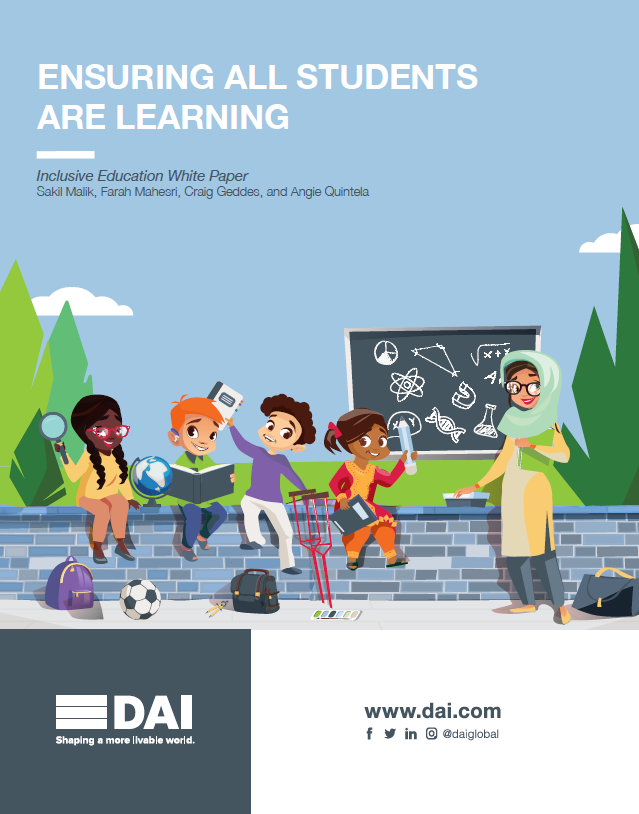The global education community works to increase access to quality education for all children around the world. Education is one of the greatest equalizers—children of all backgrounds, skill levels, and religious beliefs can learn the fundamentals of reading and writing—the core skills of communication. Education empowers all learners to become productive members of society and to thrive in their individual lives. Unfortunately, education systems across both the developed and developing worlds do not currently adequately support children of all learning abilities, or those from certain ethnic and cultural backgrounds. Instruction is primarily aimed at ‘able’ learners, leaving children of different cognitive or physical abilities at a severe disadvantage.
Even as the idea of inclusion garners support, the global community struggles to move beyond buzzwords to concrete recommendations for action. To further this discussion, DAI hosted a panel on inclusive education in 2019 to ask two fundamental questions: What are the key policy recommendations we need to be making to support inclusive education? And, what are the key aspects we need to think about during project design and implementation to achieve inclusive education?
This paper by Sakil Malik, Farah Mahesri, Craig Geddes, and Angie Quintela, captures key points from that discussion and develops them further through additional research, consolidated here into concrete recommendations for policy makers and implementers. DAI acknowledges with special thanks the contributions and insights of these experts and supporters:
Candace Debnam of School to School International
Deborah Backus of All Children Reading: A Grand Challenge for Development
Jerry Mindes of Leonard Cheshire
Josh Josa of the U.S. Agency for International Development
Lisa Wadors Verne of Benetech
Sue Swenson of Inclusion International
Amy Pallangyo, an independent education consultant.
Additional thanks and acknowledgment to the DAI Inclusive Education team: Antonio Iskandar, Gustavo Payan, and Zehra Zaidi

